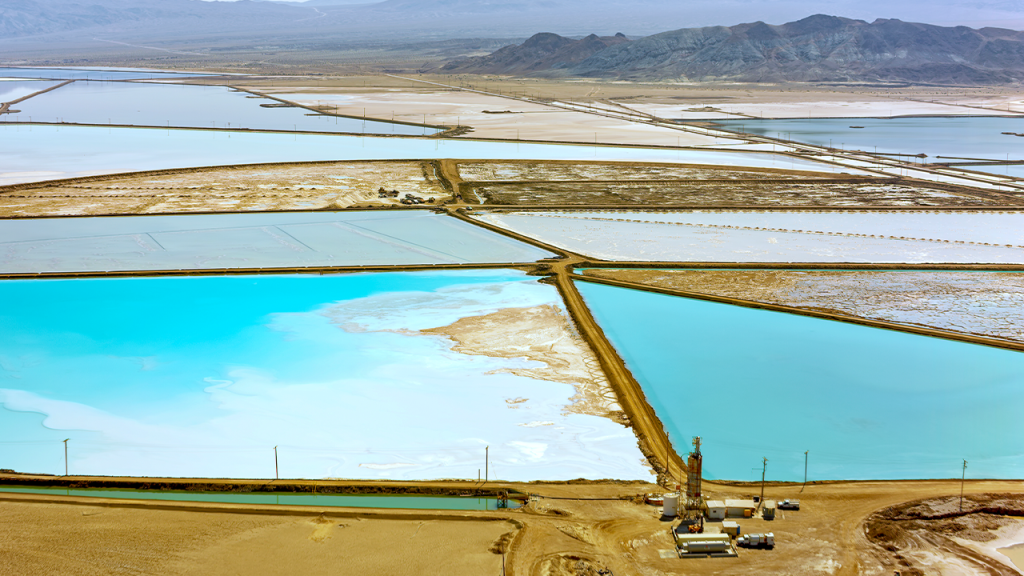Transaction Outlook 2024

As we enter 2024, the Mergers and Acquisitions (M&A) landscape is on the cusp of change, driven by transformative trends that present strategic opportunities.
Those trends include the incorporation of technological innovations, widened environmental, social, and governance (ESG) concerns and regulations, a challenging geopolitical climate, and the potential for private equity to play a bigger role in a burgeoning M&A rebound.
Mapping M&A Trends: Forces influencing 2024 dynamics
Technological innovation and digitalisation
M&A in 2024 will be influenced by technological innovation and digitalisation as companies strive to stay competitive. The focus will be on acquiring tech talent, intellectual property, and digital infrastructure, with investments directed towards startups and emerging tech firms.
Sustainability & ESG integration
In 2024, ESG factors will significantly influence corporate decisions in M&A, with a heightened focus on sustainability. Companies actively seek targets with robust ESG credentials to align with global sustainability goals and address rising demands from investors and consumers for responsible business practices.
Private equity's role
Private equity firms are expected to take a central role in 2024's M&A landscape, regaining momentum throughout the year. Actively seeking opportunities across diverse industries, private equity will leverage expertise in value creation and operational improvement.
Geopolitical factors & cross-border deals
Geopolitical dynamics will continue to shape M&A strategies in 2024. Companies will navigate political uncertainties and trade tensions for strategic cross-border acquisitions, necessitating the ability to operate globally while addressing regulatory challenges.
Rebounding global activity
A rebound in global M&A activity is anticipated in 2024, driven by renewed confidence and increased access to capital. As the global economy recovers from the disruptions of the COVID-19 pandemic, businesses will actively pursue growth opportunities through M&A transactions.
Peering into tomorrow: HLB’s annual transactional outlook
In 2024, the global M&A landscape is marked by tentative optimism but also nuanced dynamics, with challenges in some countries and a return to stability and optimism in others.
The M&A activity outlook in Europe is contingent on factors like the economic climate, industry trends, geopolitical shifts, and regulatory changes. Germany, in particular, is expected to be influenced by the conflict in Ukraine, the energy crisis, ongoing inflation, and a notable deceleration in global economic growth in 2024. Turning to another European hub, the Netherlands is expected to face challenges in the upcoming year that surpass those encountered in 2023, albeit with a gradual return to normal conditions.
With inflation stabilizing and the likelihood of additional interest rate hikes diminishing in the United Kingdom, a backdrop of market stability emerges, creating favorable conditions for transactions between buyers and sellers. However, the impending general election, along with expectations of a change in government, may briefly influence market activities.
In 2024, California expects a rise in M&A activity, propelled by momentum from Q3 and Q4 of the previous year. The focus remains on interest rates and the late 2024 election, which historically influenced economic conditions affecting M&A trends. On the US East Coast, optimism prevails, and a consensus among private equity, strategic, and investment banks points to a significant upswing in activity from Q2.
In the southern hemisphere's business hub, Australia, optimism appears to fill the air. Private M&A transactions outpaced public company deals in 2023, benefiting from reduced scrutiny and an extended planning timeframe. Looking ahead to 2024, HLB experts from Australia hold an optimistic outlook, anticipating a rise in the number of deals compared to 2023–an accomplishment that may not pose a formidable milestone but provides comfort amid the uncertainties weathered in the economic landscape of the previous year.
The Chinese M&A landscape remained subdued in 2023 as geopolitical and economic uncertainties led US dollar funds to scale back investments. Challenges in securing funds for RMB funds also contributed to a sluggish investment pace. Moving into 2024, a limited improvement in US dollar fund activity is expected, while RMB funds may show an uptick due to investment pressures, albeit not expected to reach the peak levels of 2021. The overarching projection for 2024 positions it as a year of recovery for the M&A market in China.
In another key Asian hub, Singapore, the market outlook is clouded with uncertainty, dominated by major players and conglomerates driving most M&A activities. Notably, fund activities concentrate on fund-of-funds, particularly in sectors like AI, Health, and consumers, reflecting a highly focused approach.
Experiencing economic turbulence and political uncertainties in early 2023, Brazil attracted strategic buyers and opportunistic financial players. The latter part of the year witnessed a substantial rebound in the M&A market. As 2024 unfolds with lower interest rates, controlled inflation, and a stable global climate, the forefront of progress in long-awaited deals, particularly in technology, agribusiness, and infrastructure, is expected to be driven by foreign investors.
Calming Waters: inflation's ebb sets the stage for 2024 M&A possibilities
As we enter 2024, inflation remains a key theme shaping M&A dynamics in the broader economic landscape. In HLB's Annual Survey of Business Leaders 2024, inflation has emerged globally as the biggest risk to business growth after the levels witnessed in 2023. The surge in inflation witnessed last year has increased costs for leveraged transactions, impacting valuations, leverage, returns, and the overall landscape of deal activity. Businesses in certain countries, Australia included, have seen a threefold rise in borrowing costs over the last two to three years, leading potential buyers to approach with caution.
Yet, it appears that most regions have now overcome the inflationary challenges, emerging on the other side with optimism. While there may be increased employee demands for inflation adjustments in certain countries like the Netherlands, potentially raising costs and reducing valuations, overall, there is optimism that the improved economic outlook will stimulate deal-making and align pricing between sellers and buyers. Still, how these expectations play out will vary from country to country.
In the European context, the impact of inflation on the landscape seems to exhibit variations across sectors, being perceived both as a catalyst and a constraint in shaping the M&A dynamics. For example, economic uncertainties in Germany might prompt certain companies to postpone or reduce acquisition or consolidation plans. In contrast, others consider M&A a strategic move to address inflation risks or capitalize on growth opportunities.
The UK hopes are also up as the country demonstrated progress in curbing inflation towards the end of the last year, with expectations that this development will alleviate pressure on wage increases, empower businesses to boost profitability, and drive economic growth through heightened demand.
Across the pond, inflation is also moderating, and the US deal professionals have factored it into their considerations. Inflation is no longer seen as a hindrance to deal flow. The M&A landscape adjusted to higher interest rates in 2023, with continued activity in the middle market. Despite some lingering challenges from inflation, which may put pressure on businesses and potentially lead to divestitures, there are still active buyers focused on strategic assets.
As one of the first major economies to raise interest rates, Brazil has witnessed early signs of waning inflation. As a result, it was also one of the first countries to implement interest rate cuts in August 2023. The market anticipates further rate reductions in 2024, and with controlled inflation, this could potentially facilitate deals and attract foreign investors.
Renewed focus on deal excellence: Cross-Border transactions adjust to the new normal of persistent tensions
Geopolitical tensions, trade conflicts, and political uncertainties significantly impact M&A activities, eroding confidence and fostering caution. Nevertheless, it seems that in 2023, their grip on the M&A market has weakened, albeit with varying degrees across different geographical regions.
For example, in Australia, our HLB experts anticipate that robust asset quality and well-founded pricing, supported by comprehensive due diligence, will likely render the impact of geopolitical tensions negligible. Similarly, in the nearby HLB Singapore, the view is that cross-border transactions are unlikely to be affected by geopolitical tensions, as this Asian hub primarily concentrates on private equity and hedge fund activities rather than fund-of-fund operations.
In Germany, companies mitigate geopolitical risks by scaling back engagement in crisis regions. On the other hand, heightened regulatory demands, particularly in antitrust, foreign trade, and the Foreign Subsidies Regulation, make cross-border transactions more challenging. But despite these challenges, the proportion of such transactions is expected to remain high. Meanwhile, in the Netherlands, opportunities persist in 2024, albeit presenting greater challenges than in 2023, particularly in stable countries attractive for international expansion.
Across the channel from the European bloc, UK export businesses are projected to tackle post-Brexit challenges by establishing EU operations to handle logistical issues. The favorable exchange rate is also expected to foster continued US investment in the UK, particularly in technology and life sciences.
While global businesses seem to be adapting to persistent geopolitical tensions, the M&A market reveals that a one-size-fits-all approach does not apply, especially in the US and China.
Given the current geopolitical conditions, China is expected to adopt a more conservative and cautious stance towards cross-border investment and M&A. Similarly, in the US, the complexities of the global economy, geopolitical volatility, and uncertainty in advanced economies heighten risks for cross-border transactions compared to domestic activities. North American deals are poised to be the primary driver of activity, reflecting increased caution in cross-border transactions.
Redefining M&A: The revolutionary influence of technology
Over the past year, novel technologies such as artificial intelligence (AI) have become top of mind for business leaders in the M&A space. Companies increasingly rely on advanced data analytics and AI to analyze extensive datasets, identify acquisition targets, and recognize patterns beyond human analysis.
The use of advanced data analytics tools is growing in due diligence processes worldwide, with advanced data analytics tools like Tableau and Power Query being employed to enhance insights during due diligence. Deal professionals globally leverage big data and AI for investment analysis and growth opportunities, focusing on cybersecurity for pre-closing diligence and post-closing system reinforcement. In evolving M&A landscapes, technology adoption is surging, but challenges persist in ensuring data accuracy for smaller companies. Additionally, AI/DA sector companies are becoming targets for M&A activities as major tech players and banks look to enhance their presence in this sector.
Staying ahead of the curve
In a global environment marked by consistent economic and geopolitical tensions, challenges are gradually easing, particularly evident in the diminishing signs of inflation. Amid the evolving landscape, cautious optimism is on the rise, yet a degree of uncertainty persists. For expert guidance in navigating these trends, connect with HLB Transactional Advisory Service to stay ahead in today's global environment.
Related content






